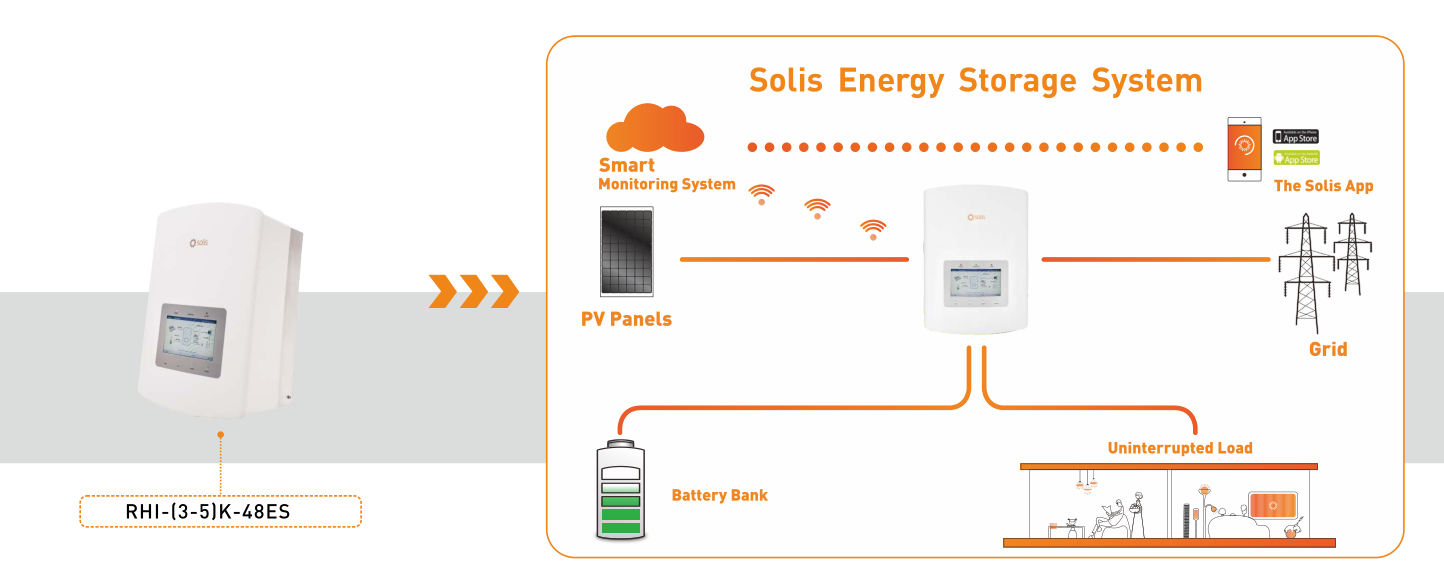Maximizing Energy Efficiency with Hybrid Inverters
As the world embraces renewable energy sources to combat climate change and reduce reliance on fossil fuels, hybrid inverters have emerged as a key component in revolutionizing energy consumption. Combining the best of both worlds, these advanced devices seamlessly integrate solar power and traditional electricity sources to create efficient, reliable, and sustainable energy systems. In this article, we delve into the world of hybrid inverters, exploring their features, benefits, and how they contribute to maximizing energy efficiency.

Understanding Hybrid Inverters: A Gateway to Sustainable Power
Hybrid inverters are devices that seamlessly integrate solar power systems and traditional electricity sources, such as the grid or backup generators. They combine the functions of a solar inverter, which converts direct current (DC) from solar panels into alternating current (AC) for use in homes or businesses, and a traditional inverter that manages power from the grid.
How Do Hybrid Inverters Work?
Hybrid inverters use sophisticated algorithms and advanced electronics to intelligently manage power sources. They monitor the energy generated by solar panels and prioritize its use, ensuring the highest possible self-consumption of solar energy. When solar power is insufficient, hybrid inverters draw energy from the grid or a backup generator, seamlessly switching between power sources.
Advantages of Hybrid Inverters
a. Energy Efficiency: Hybrid inverters maximize energy efficiency by optimizing the utilization of solar power. By consuming more self-generated energy and reducing reliance on the grid, households and businesses can significantly lower their energy bills and carbon footprint.
b. Flexibility and Power Management: Hybrid inverters provide flexibility in power management, allowing users to decide when and how to consume energy. They enable smart features like load shifting, time-of-use optimization, and remote monitoring, empowering users to make informed choices and reduce energy waste.
c. Grid Independence: With hybrid inverters, users can enjoy increased independence from the grid. During power outages, these inverters can operate in island mode, powering essential appliances and ensuring uninterrupted electricity supply.
d. Energy Storage Integration: Hybrid inverters seamlessly integrate with energy storage systems, such as batteries. This allows excess solar energy to be stored for later use, enabling users to maximize self-consumption and further reduce reliance on the grid.
Installation and Configuration of Hybrid Inverters
Installing a hybrid inverter requires professional expertise to ensure optimal performance and safety. An experienced technician will assess the electrical system, configure the inverter settings, and integrate it with solar panels and other power sources. Proper installation is crucial to maximize the benefits of a hybrid inverter and ensure its seamless operation within the existing power infrastructure.
Frequently Asked Questions (FAQs) About Hybrid Inverters
a. What is the difference between a hybrid inverter and a regular inverter?
A hybrid inverter combines the functionalities of a solar inverter and a traditional inverter, allowing for the integration of solar power and grid electricity. Regular inverters only manage power from the grid and cannot utilize solar energy.
b. Can a hybrid inverter work with any solar panel system?
Yes, hybrid inverters are compatible with most solar panel systems, regardless of their capacity or brand. They are designed to optimize energy consumption from solar power and can be customized to suit individual energy needs.
c. Do hybrid inverters require a battery for operation?
While hybrid inverters can operate without a battery, integrating energy storage systems, such as batteries, enhances their performance and maximizes self-consumption of solar energy. Batteries provide backup power during outages and enable greater energy independence.
d. Are hybrid inverters compatible with existing electrical systems?
Yes, hybrid inverters can be integrated into existing electrical systems. However, it is important to ensure compatibility and consult with a professional installer to assess the feasibility and make any necessary adjustments.
e. How long do hybrid inverters typically last?
Hybrid inverters have a lifespan similar to that of regular inverters, typically ranging from 10 to 20 years. Regular maintenance and monitoring can extend their lifespan and ensure optimal performance.
f. Are hybrid inverters cost-effective compared to traditional inverters?
While the upfront cost of hybrid inverters may be higher, their long-term cost-effectiveness becomes evident through reduced energy bills and increased self-consumption of solar power. The potential savings and environmental benefits make hybrid inverters a wise investment in the long run.
Conclusion: Embracing Hybrid Inverters for a Sustainable Future
Hybrid inverters bridge the gap between renewable energy and traditional power sources, unlocking the full potential of solar energy and optimizing energy consumption. Their ability to seamlessly integrate solar power, grid electricity, and energy storage systems makes them invaluable in building sustainable and efficient energy systems. By harnessing the benefits of hybrid inverters, we can pave the way for a brighter and greener future, where renewable energy takes center stage in combating climate change and ensuring a sustainable planet for generations to come.

Comments
0